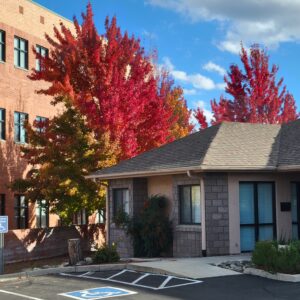EVIDENTIARY PRIVILEGES
Evidentiary privileges are often discussed and seldom understood. Most people understand that what a person reveals to their priest in the church confessional booth must remain confidential. Similarly, most people know that what they tell their lawyer, in confidence, cannot be revealed without their permission. Prescott, AZ lawyers.
Likewise, many people trust that information they provide to their physician, for purposes of medical treatment, will be not be disseminated in public. In Arizona, all of these things have one thing in common: an evidentiary privilege. Most Arizonans are familiar with the Fifth Amendment right against self-incrimination. This right is a “testimonial privilege.”
What this means is that the government cannot force you to testify against your own interests in a court of law. There are several other testimonial privileges that, while not being afforded constitutional protection, have long been recognized and upheld. Some of these Arizona privileges are:
Attorney – Client privilege
Doctor – Patient privilege
Clergy – Penitent privilege
Husband – Wife privilege
Reporter – Informant
These testimonial privileges, and others, have evolved over the years into an “evidentiary” privilege. What this means is that the privilege is protected by a rule of evidence, or by a statute, that prohibits the use of the information not just during a trial but during pre-trial proceedings such as hearings and depositions. Further, the privilege extends to non-judicial proceedings and often shields the information from disclosure where no civil or criminal process has begun.
In order to encourage full communication between attorney and client, a privilege has developed that requires the attorney to keep the client’s communications, and confidences, secret. The client is the holder of the privilege, not the attorney. If the client reveals the subject of a communication with the attorney, the attorney can then be compelled to disclose the entire communication.
A client who tells a lawyer that the client intends to commit a crime cannot expect the secret to be kept. Lawyers have a duty to report plans to commit a crime. But, if a client confesses to a lawyer that the client has already committed a crime, the lawyer must keep that secret unless the client permits it to be disclosed. The object of this privilege is full disclosure, which is thought to facilitate more competent advice and counseling by the lawyer.
A lawyer is duty-bound to raise the privilege whenever the situation presents itself. Once raised, a lawyer cannot be compelled to reveal the confidences of the client unless the client permits the lawyer to discuss the matter or unless the client discusses it himself/herself.
To encourage patients to tell their doctor everything, in order to receive proper care and treatment, a privilege exists to keep medical information and records confidential. Like other privileges, the doctor – patient privilege does not exist unless the information is disclosed in confidence. Thus, if you go to the doctor and take your mother along, the information is not secret from anyone if your mother listens in while you talk to the doctor. You can talk to the doctor with a nurse in the room, but if there is anyone other than a medical provider present, no privilege exists.
The physician-patient privilege has recently been supplemented by federal laws, rules, and regulations designed to protect patient privacy. As a result, you may see new forms, signs or procedures in hospitals, pharmacies, and medical offices: medical providers are required to take certain steps to protect the privacy of the patient.
The clergy-penitent privilege protects certain communications made by a person to their pastor, priest, rabbi, etc. The communication must be intended by the person to be a confession of sin in order to be protected. And, the clergyman must be acting in the capacity of a clergy member receiving the confession of a penitent. Once those prerequisites are met, the clergyman cannot be compelled to reveal the confidences of the penitent.
The husband-wife privilege applies to confidential communications between husband and wife, during the marriage. A spouse cannot be forced in a civil case to testify about statements made in confidence by the other spouse, except in certain situations. For example, the privilege does not apply in a divorce proceeding or in a lawsuit involving adultery.
The reporter-informant privilege is a privilege granted by the Arizona legislature and has been in existence in one form or another since 1960. This privilege protects “the source of information procured or obtained” by a newspaper, radio or television reporter for broadcast. The information must be obtained during the course of the reporter’s official work duties.
Other Arizona evidentiary privileges include the “mediation” privilege and the “domestic violence” privilege. The mediation privilege protects communications which occur during the process of mediating a dispute. The domestic violence privilege protects communications made to a domestic violence victim advocate.
Although privileges against disclosure of information exist, they may be waived. Sometimes, the waiver does not have to be in writing or even be specific. Conduct, alone, can constitute a waiver of a privilege. For example, by filing a lawsuit against a driver who has rear-ended you and injured you, and by claiming that you sustained physical injuries in the collision, you have placed your medical condition at issue. The law implies a waiver of the doctor-patient privilege to the extent necessary to determine whether your injuries are real or feigned, and whether the injuries result from the collision or from some other injury or condition.
Strictly speaking, a testimonial privilege applies only to testimony given in a trial, hearing or deposition. An evidentiary privilege applies to other situations, such as the effort to obtain medical records. An evidentiary privilege, properly invoked, may prevent the disclosure of documents and records, in addition to spoken words.

